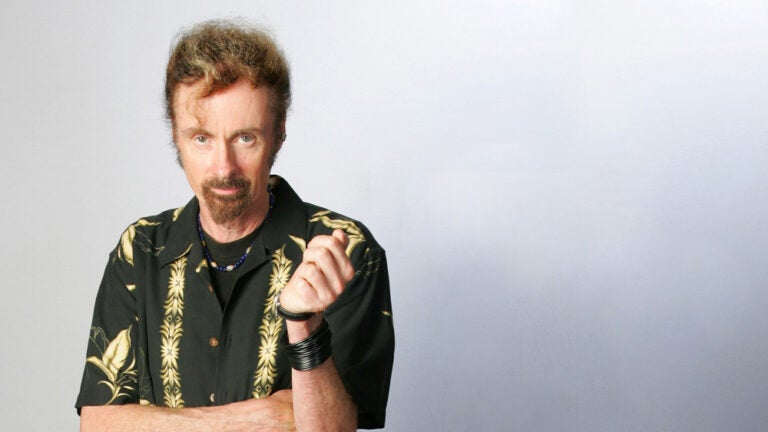
Wit Gets Its Due
The hours of early-morning writing, the meticulous construction of his characters’ psyches and the unmitigated need to research, chronicle and give contemporary America a good dose of wry wit, have again paid off for writer and Distinguished Professor of English T. Coraghessan Boyle.
Boyle has been inducted into the American Academy of Arts and Letters. Following the official ceremony in May, he will enter a 250-member club that has included Henry Adams, Mark Twain and Mark Rothko, and currently features Edward Albee, Philip Glass and Toni Morrison.
This honor follows a long list of accolades for the Peekskill, New York-born Boyle, whose recognition and success as an author nearly parallel his 31-year stewardship of aspiring writers in USC College’s Department of English.
During that time, Boyle has received fellowships from the National Endowment for the Arts and the Guggenheim Foundation, O. Henry Awards for his short fiction, and awards for his novels including the PEN/Faulkner for World’s End (1988) and the much coveted Prix Médicis Étranger best foreign novel award for The Tortilla Curtain (1995).
In fact, this is Boyle’s second brush with the American Academy of the Arts and Letters. He received the academy’s Harold D. Vursell Memorial Award for “recent prose that merits recognition” in 1993. Even with that, this latest distinction came as a surprise to the writer and teacher.
“Since I’m not one to campaign for such things,” Boyle said, “this is both unexpected and deeply rewarding. I am pleased and honored to know that my peers think enough of my work to include me in the academy.”
But after some thought, the same cynical humor found in so many of his characters showed through in the writer himself.
“This is an appointment for life,” he said. “So I guess I better go out and buy a cane now and reserve the wheelchair for later.”
Fellow Professor of English and renowned award-winning poet, David St. John, considered Boyle’s induction more meditatively:
“Tom has shown with all of his collections of stories and his extraordinary novels an exceptional insight into what makes America tick, and the ways its eccentrics – and other fierce individuals – have helped define for us what it means to be alive in both this and early times. This distinction is long overdue.”
Boyle, who holds both an MFA and Ph.D. from the University of Iowa, teaches one advanced fiction course for undergraduates and one Ph.D.-level writing course within the English department. Since he first joined USC College’s faculty in 1978, he has been instrumental in the cultivation of many gifted writers who themselves have gone on to successful careers.
“This is a wonderful and well deserved tribute to one of the most gifted writers of our times,” said Howard Gillman, dean of USC College. “We are proud of his lifetime achievement and are honored to have such a distinguished professor and scholar within the College of Letters, Arts & Sciences.”
As a writer, Boyle’s work has been compared to authors such as Thomas Pynchon and John Barth; no doubt lofty wordsmiths with whose company a writer can only hope to be mentioned.
However, Boyle claims of himself: “I’m about as far outside of being an insider as anyone could be.”
And of how this award might be perceived by his students, Boyle affirms that while they will be happy for him, his induction will not be a focal point within the classroom.
“What they see is what I am: a teacher and a writer,” he said. “What shows is the work itself. Awards, honors, book sales and the like are terrific and gratifying, but the most gratifying thing is to be able to do creative work each day and see it realized in print. I know that I am communicating in a very essential way with my fellow sentient beings. You can’t ask for much more than that.”